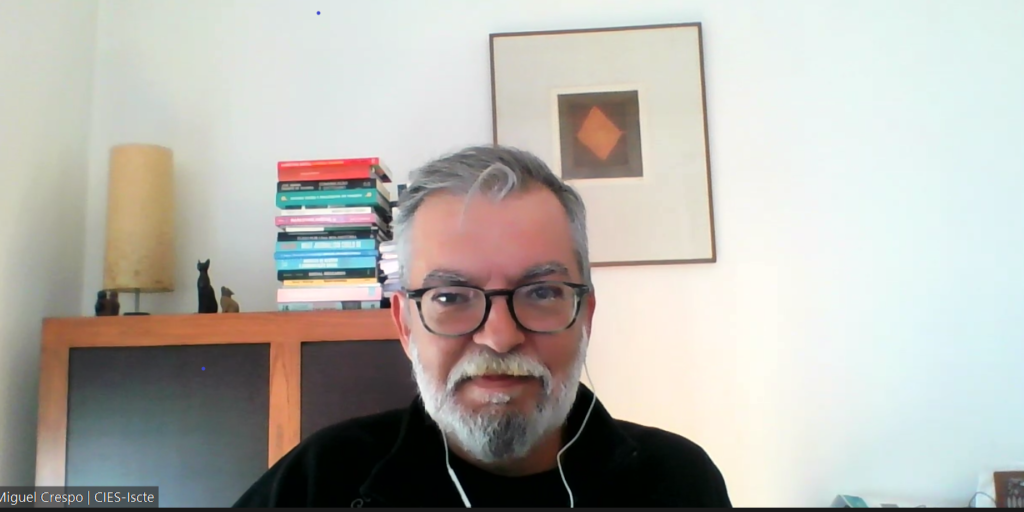Os indivíduos não produzem jornalismo no sentido tradicional mas podem acrescentar elementos à informação e ganhar conhecimento acerca da notícia. Esta foi uma das conclusões proferidas por Miguel Crespo, coordenador do projeto IBERIFIER, durante a apresentação do “From Crowdsourcing Journalism to the Platformization of News: An Analysis of Citizens’ Collaboration, Emulation and Remix Practices in Social Media”, durante o no workshop “Media and Information Literacy: The role of Academia and media Experts”, que decorreu a 27 outubro.
A relevância dos cidadãos no jornalismo não diminuiu, antes pelo contrário. A interação que podem estabelecer através das novas plataformas cria novas oportunidades. Esta questão da participação dos utilizadores dos média no jornalismo exige uma reflexão sobre o jornalismo como produto ou como conteúdo, explicou Miguel Crespo, que concluiu que o cidadão não produz jornalismo, no sentido considerado pela corrente jornalismo do cidadão, mas é uma parte do processo de produção.
E mais do que isso, é preciso inverter o processo tradicional da informação. Esta não termina com a divulgação das peças pelo jornalista. Estamos diante de mais um passo no processo. O leitor, observador, acrescenta elementos a esse produto, que, afinal, não fecha o assunto noticioso, defendeu o investigador do CIES-ISCTE. Este projeto insere-se numa pesquisa mais extensa e detalhada: D2.4_Catalogue-of-Best-Practises-in-Citizen-Journalism.pdf (eumeplat.eu)
Participaram neste painel organizado pelo EUMEPLAT, inserido no projeto da “UNESCO Global Media and Information Literacy Week” investigadores como Nathalie Clauter, Mohamed Elhawary, Emilia Stoduto, Andrea Miconi, Amina Hamila e Marcello Scalist.

